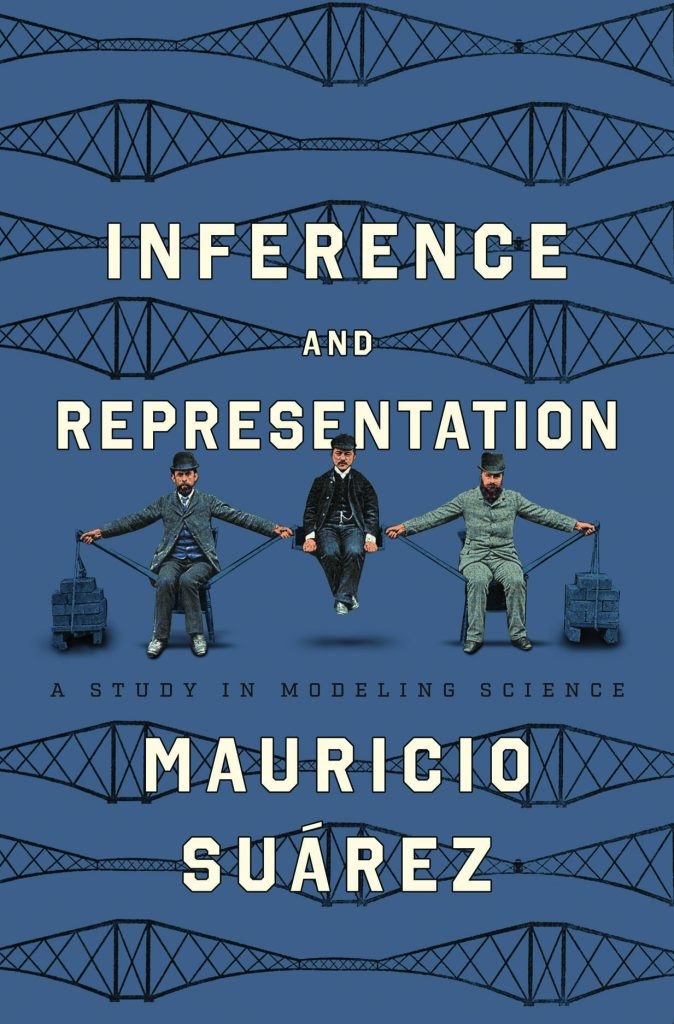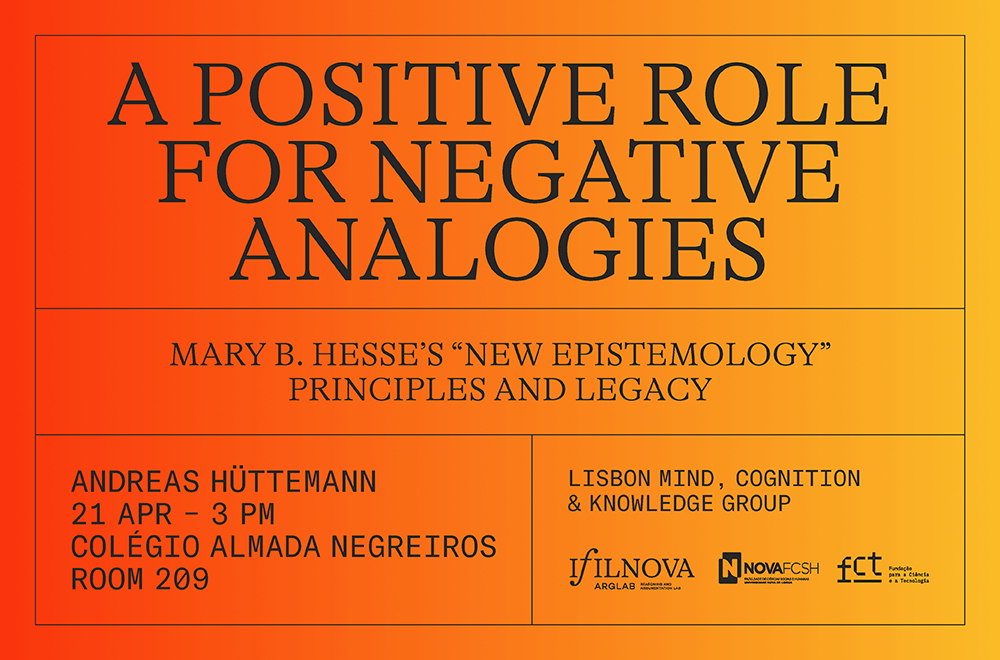Categories
Category: events
Categories
Inference and Representation
On November 24th, 2023, at 5PM (London/Lisbon), Mauricio Suárez will present his new book on “Inference and Representation” (UCP 2024) at the Institute of Philosophy of the NOVA University of Lisbon. The book launch will also be transmitted online.
In this book, Suárez develops a conception of representation that delivers a compelling account of modeling practice. He begins by discussing the history and methodology of model building, charting the emergence of what he calls the modeling attitude, a nineteenth-century and fin de siècle development. Prominent cases of models, both historical and contemporary, are used as benchmarks for the accounts of representation considered throughout the book. After arguing against reductive naturalist theories of scientific representation, Suárez sets out his own account: a case for pluralism regarding the means of representation and minimalism regarding its constituents. He shows that scientists employ a variety of modeling relations in their representational practice—which helps them to assess the accuracy of their representations—while demonstrating that there is nothing metaphysically deep about the constituent relation that encompasses all these diverse means.
The book also probes the broad implications of Suárez’s inferential conception outside scientific modeling itself, covering analogies with debates about artistic representation and philosophical thought over the past several decades.
To join the session on Zoom and receive 30% discount voucher to buy the book, please register at this link.
Categories
Hesse on Materiality and Induction
The next session of our research seminar will be in charge of Francesco Nappo, from the Politecnico of Milan.
On October 24th, starting at 11:00, he will deliver a paper titled “Mary Hesse on Materiality and Induction“. Aim of this paper is to discuss one of the most widespread misinterpretations of Hesse’s works, which concerns the distinction between “formal” and “material” analogies in science, provide an interpretation of Hesse’s material condition that does justice to its epistemological significance, and bring out connections to some of Hesse’s other works on the topic of induction and scientific reasoning.
The session will take place at Colégio Almada Negreiros of the NOVA University of Lisbon , Room SE1.
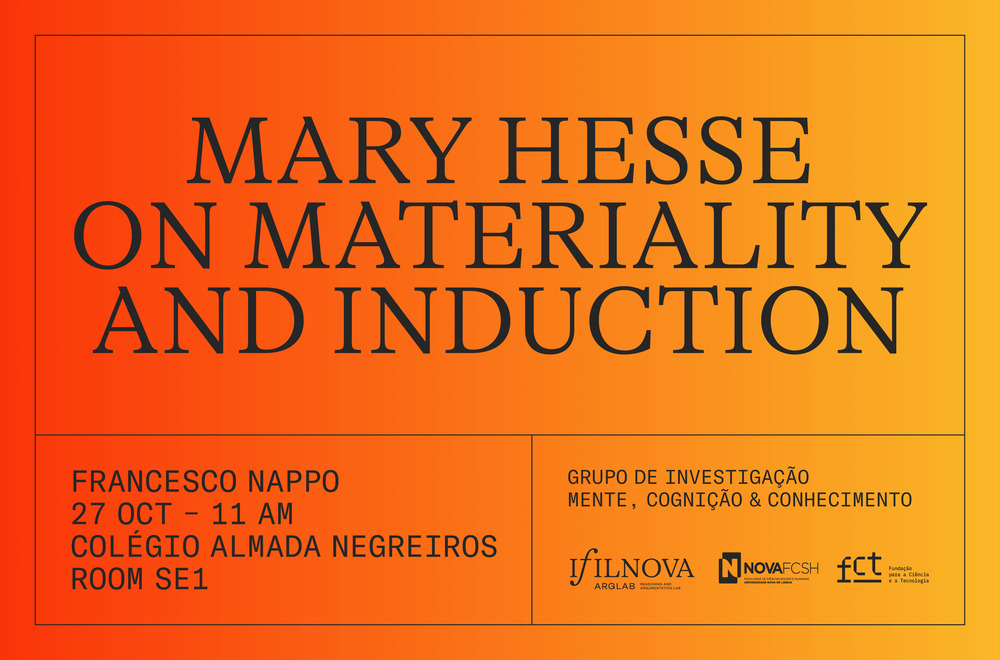
Categories
Pietro Gori @EPISTRAN preliminary meeting
In the occasion of the EPISTRAN preliminary meeting that will take place on July 2023, 13th and 14th (NOVA/FCSH + online), Pietro Gori will deliver an exploratory paper titled “Expanding the epistemological framework of natural science. Mary Hesse (and Thomas Kuhn) on Hermeneutics, Translation, and Interpretation“.
The paper will be focused on Mary Hesse’s hermeneutic approach towards scientific knowledge, in relationship/comparison with Thomas Kuhn’s reflections on translation and interpretation in science.
The EPISTRAN project is financed by the Portuguese Foundation for Science and Technology, through CETAPS’ strategic programme, references UIDB/04097/2020 and UIDP/04097/2020. It also enjoys the collaboration of the following research centres: CHAM, CICS, CRIA, CLUNL, IFILNOVA, CEAUL, CECC
Categories
EPISTRAN project
Within the activities on Mary Hesse’s view of scientific knowledge, part of the research team joined the project on “Epistemic Translation: Towards an Ecology of Knowledges” (EPISTRAN) launched in Spring 2023 at the FCSH/NOVA University of Lisbon.
Responding to a challenge raised by Douglas Robinson in the conclusion of his book Translationality (2017: 200-202), the EPISTRAN project uses concepts, methods and theories from Translation Studies to investigate the semiotic processes (verbal and nonverbal) involved in the transfer of information between different ‘epistemic systems’. The main focus is on the relationship between technical ‘scientific’ knowledge (i.e. the kind of knowledge which purports to be objective, rational and universal) and the various embedded, embodied and subjective forms of knowledge that have served as its Others in different times and places. Starting from the assumption that these are different modes of discourse and thus susceptible to translational operations, the project seeks to investigate the mechanisms at work in three distinct areas:
-
Science and Humanities – how specialist science is reformulated into popular and educational science, or reworked into imaginative literature, audiovisual content or even works of art
-
Knowledges of the World – how forms of epistemic translation are/can be used to transmit scientific and medical knowledge to indigenous communities in the Global South, and, conversely, how indigenous knowledges from these regions are/can be translated into formats that are meaningful to the sophisticated North
-
The Invention of Science – the translational processes involved in the Early Modern transition to a scientific mode of inquiry
The research, which makes use of methods drawn from Descriptive Translation Studies, supplemented with considerations from recent work in the fields of multimodality, neuroscience and information technology, is conducted by a transdisciplinary team with a shared interest in translation.
EPISTRAN is financed by the Portuguese Foundation for Science and Technology, through CETAPS’ strategic programme, references UIDB/04097/2020 and UIDP/04097/2020. It also enjoys the collaboration of the following research centres: CHAM, CICS, CRIA, CLUNL, IFILNOVA, CEAUL, CECC
Categories
Forthcoming papers @LICPOS 2023
Two members of the research team will attend the 4th Lisbon International Conference of Philosophy of Science (LICPOS – 2023) at the University of Lisbon, CFCUL, on July 14th.
-
Guido Tana will deliver a paper titled “Dogmatism, Knowledge, and Factivity”. The presentation will analyse and assess some proposed solutions of the dogmatist paradox and presents a possible, albeit revisionary, way out. Specifically, whether it really is irrational to be dogmatic in the way described above, and whether it is possible to utter genuine knowledge-claims while allowing for knowledge defeasibility. It will be argued that both approaches fail to solve the paradox.
-
Pietro Gori will develop some “Remarks on Mary Hesse’s hermeneutic account of scientific knowledge”. Aim of his paper will be to reflect on Hesse’s attempt to bridge the gap between the approach to knowledge exhibited by the natural sciences on the one hand, and the human or social sciences on the other, with an emphasis on the consequences that this comparison may have on the educational plane.
The complete programme of the conference is available here.
Categories
SciRep 2023
The programme of the conference “The Value of Scientific Representation. Classic Issues and Contemporary Challenges”, is out!
Take a look at it at this link.
The conference takes place at the NOVA University of Lisbon on June 21st-22nd, 2023.
Keynote Speakers: Alisa Bokulich (Boston University) and Michela Massimi (The University of Edinburgh).
Organized within the activities of the research project “Mary B. Hesse’s ‘new epistemology’. Principles and Legacy” (FCT/IFILNOVA), The conference aims to explore issues from the current debate on scientific representation that may be – directly or indirectly – connected with Mary B. Hesse’s theoretical understanding of science. On a general level, the speakers will engage with open questions related with the value of the scientific world-explanation from a variety of viewpoints that shall not be limited to a philosophical or linguistic analysis of the issues explored, but may also involve contributions devoted to classic figures of the history and philosophy of science.
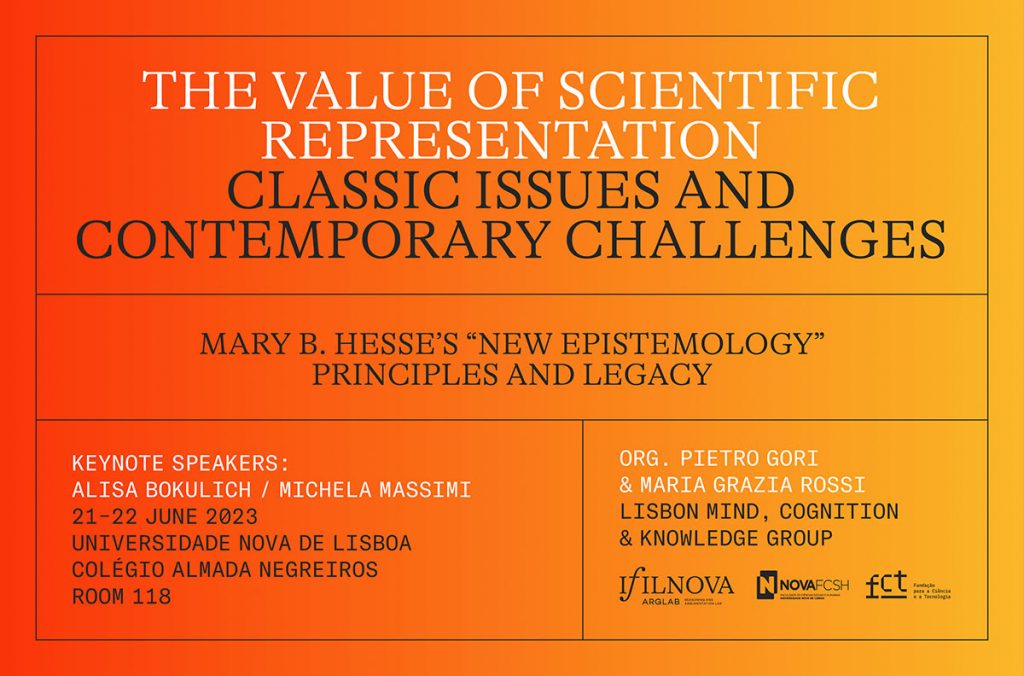
Categories
Wittgenstein’s “Tractatus”
The next session of our research seminar will be in charge of Nuno Venturinha, member of the research team at IFILNOVA.
On the 12th of May, starting at 11:00, he will deliver a paper titled “A Epistemologia do Tractatus”,
The session will take place at Colégio Almada Negreiros of the NOVA University of Lisbon , Room SC.
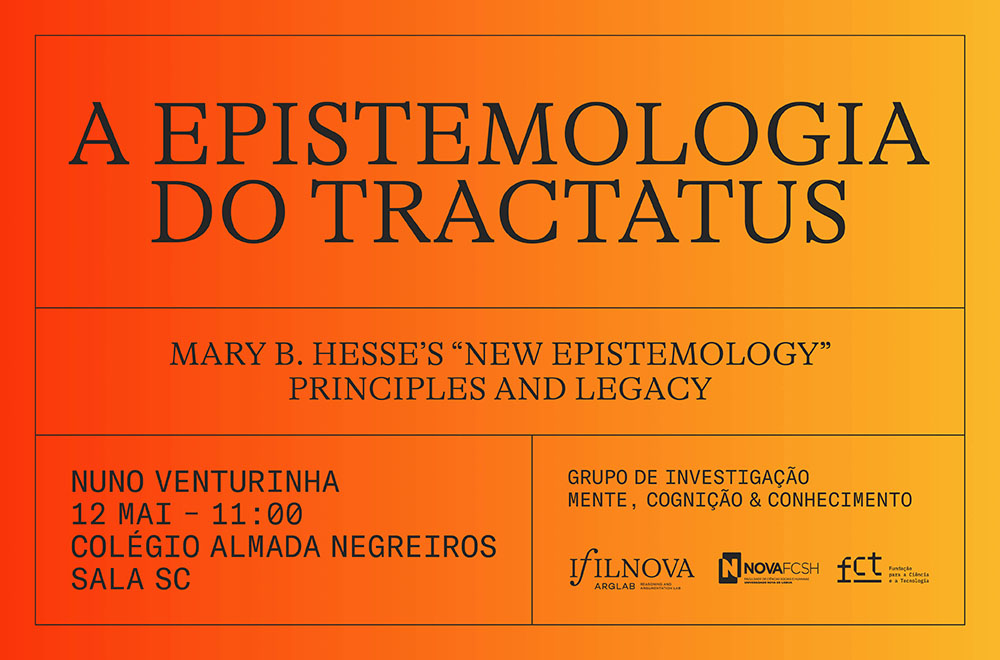
Categories
Negative Analogies
The next session of our research seminar will be in charge of Andreas Hüttemann, from the University of Cologne.
On April 21st, starting at 15:00, he will deliver a paper titled “A Positive Role for Negative Analogies”, a term introduced by Mary Hesse in her work on models and analogies. “Negative analogies” stands for properties of the model that the target system lacks. In his talk, Andreas Hüttemann will explore, first, why according to Hesse we need to use models in science, second, what Hesse has to say about the role of negative analogies in particular. He will then argue that the role of negative analogies is best understood in the context of a more general account of idealization. Negative analogies, conceived of as idealizations, provide us with knowledge of invariance relations, or more generally with modal knowledge.
The session will take place at Colégio Almada Negreiros of the NOVA University of Lisbon , Room 209.
Categories
